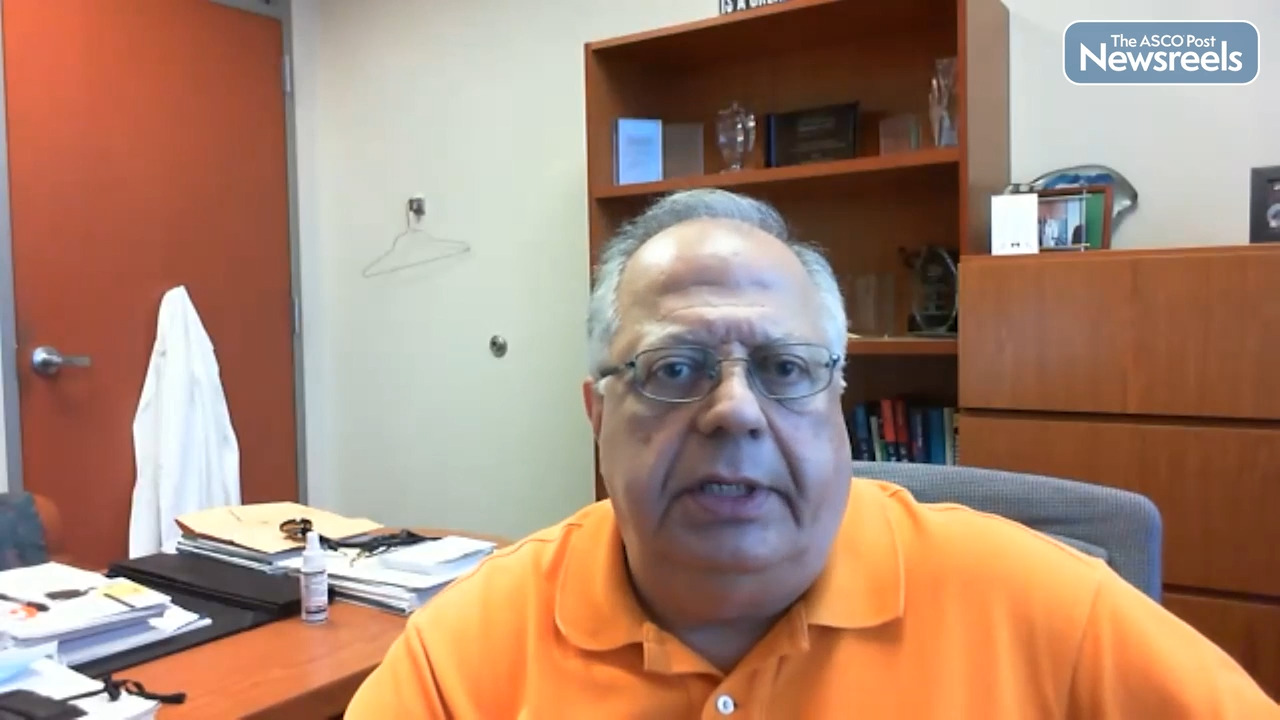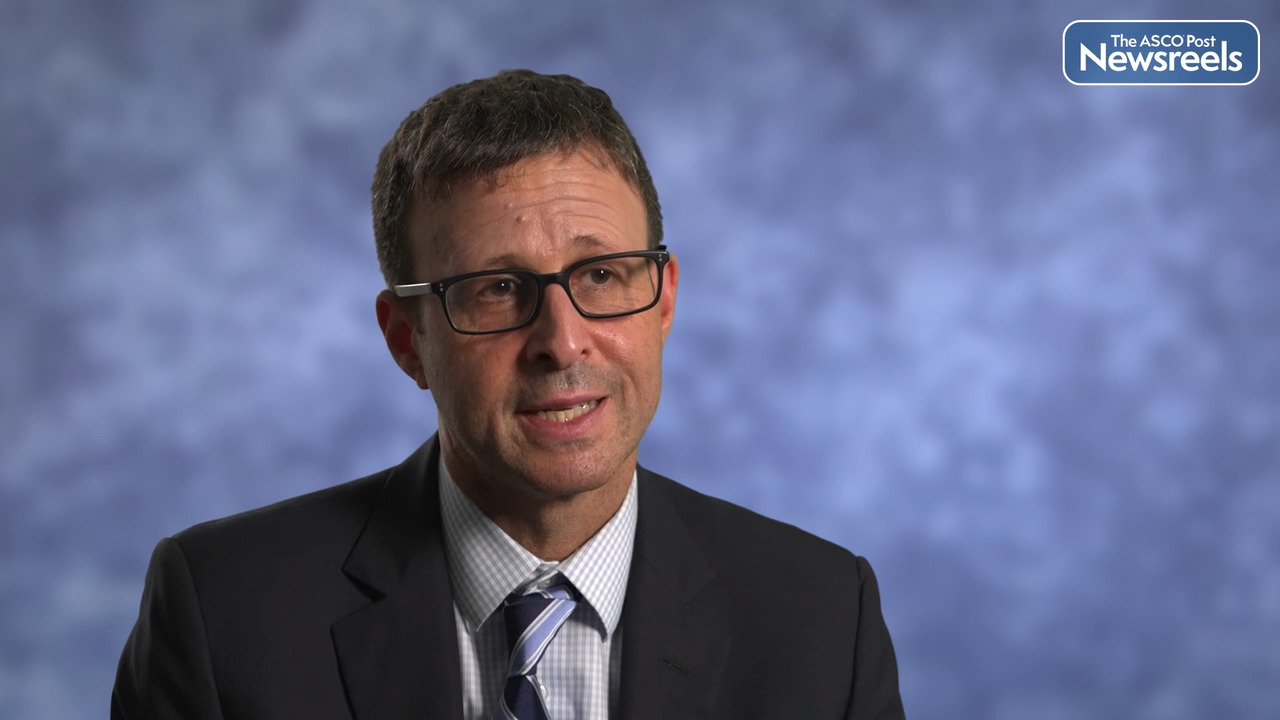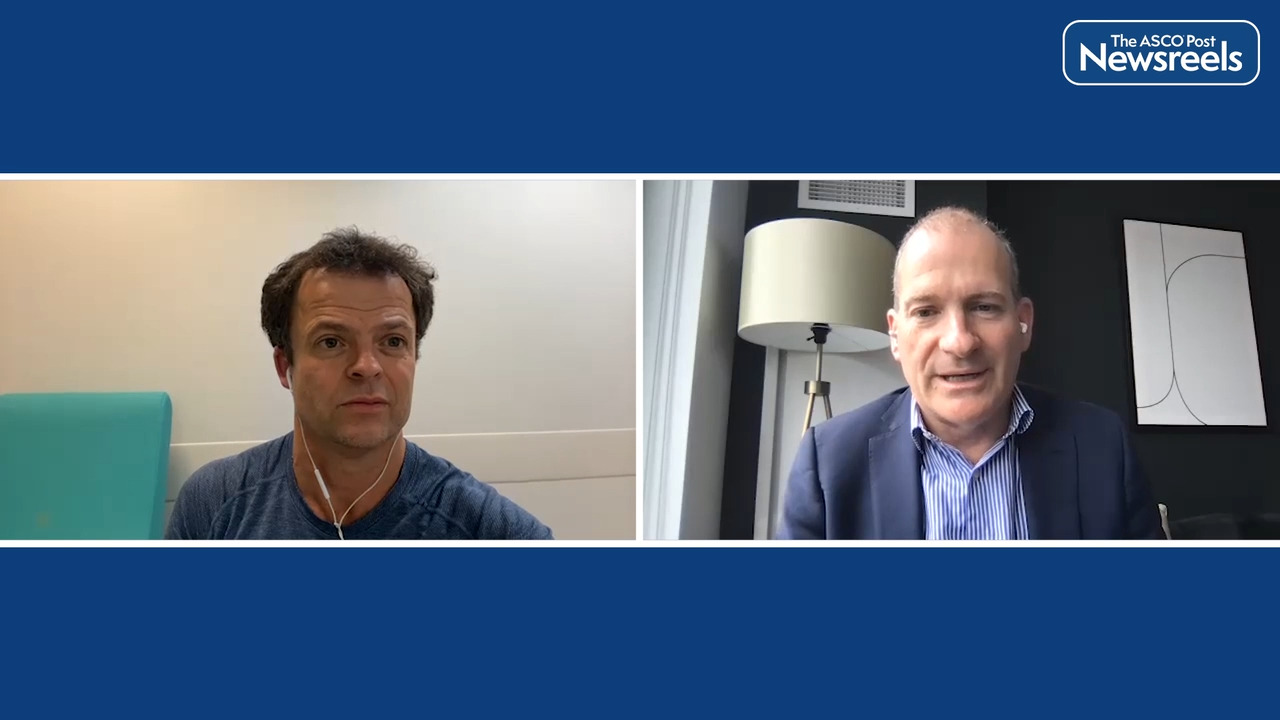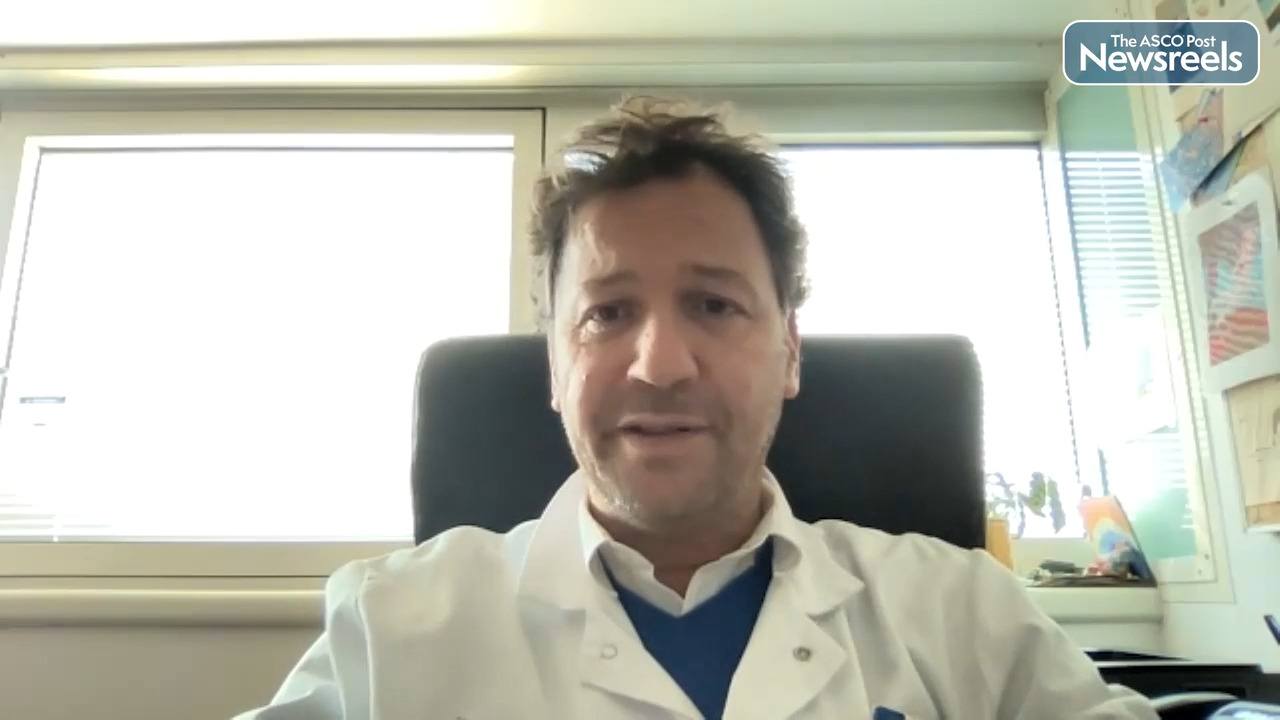Bernd Kasper, MD, PhD, on Desmoid Tumors: Results on Nirogacestat vs Placebo
ESMO Congress 2022
Bernd Kasper, MD, PhD, of Germany’s Mannheim Cancer Center, discusses phase III data from the DeFi trial, the largest study conducted to date for patients with desmoid tumors. The trial showed that the gamma secretase inhibitor nirogacestat demonstrated improvements in all primary and secondary efficacy endpoints. Although considered benign because of their inability to metastasize, desmoid tumors can cause significant morbidity and, occasionally, mortality in patients (Abstract LBA2).
Transcript
Disclaimer: This video transcript has not been proofread or edited and may contain errors.
It's my pleasure to speak about DeFi phase III trial of nirogacestat in progressing desmoid tumor patients and I had the pleasure to present that trial yesterday at ESMO 2022 in the presidential session.
When talking about desmoid tumors, we are actually talking about a rare disease. They are locally aggressive and invasive soft tissue tumors that are somehow difficult to manage due to their variable presentations, the unpredictable clinical cause, and the lack of currently approved therapies. There is indeed a clear rationale for the use of gamma secretase inhibitors in this disease as desmoid tumors express [inaudible 00:00:47], which can be blocked by gamma secretase inhibitors.
So nirogacestat is an investigational oral and selective small molecule gamma secretase inhibitor that already showed activity in phase I and II trials in desmoid tumors with a manageable safety profile. The phase III trial is a large global randomized double blind placebo-controlled trial, looking at safety, efficacy and tolerability of nirogacestat in comparison to placebo in resist progressing desmoid tumors.
We actually randomized 142 patients in 37 sites all over the world and primary endpoint was progression-free survival and secondary endpoints included overall response rate, and a couple of different patient-reported outcome measures.
So the results are as follows. The primary endpoint was met with improved progression-free survival, demonstrating a statistically significant 71% reduction in the risk of disease progression. And the confirmed objective response rate was 41% with nirogacestat as compared to 8% in the placebo arm. Again, highly statistically significant, including 7% complete responses with nirogacestat. The median time to response was 5.6 months with nirogacestat compared to 11 month in the placebo arm.
In terms of safety, actually nirogacestat was well tolerated. 95% of all treatment emergent adverse events were grade I or II. The most frequent side effect with nirogacestat were diarrhea, rash, hyperphosphatemia and fatigue. And those reductions were necessary in about 40% of patients and were primarily due to diarrhea, rash, and stomatitis.
In summary, DeFi represents the largest and most rigorous randomized controlled trial to-date in desmoid tumor. It actually definitely showed rapid, sustained and statistically significant improvements in all primary and secondary endpoints. It had a manageable safety profile with 95% of all the treatment emergent adverse events being grade I or II, and nirogacestat does have the potential to become the standard of care in desmoid tumors requiring systemic treatment.
There are definitely a couple of open questions still from that trial. One question might be the lengths of treatment duration so there could be something like a discontinuation trial. But what we'd learned from that trial already that nirogacestat is absolutely feasible for long-term treatment in this patient population and we will investigate, of course, a lot of other questions as well.
Related Videos
The ASCO Post Staff
Nizar M. Tannir, MD, of The University of Texas MD Anderson Cancer Center, discusses phase III findings from the PIVOT-09 study, which compared bempegaldesleukin plus nivolumab with the investigator’s choice of a tyrosine kinase inhibitor (either sunitinib or cabozantinib) in patients with previously untreated advanced renal cell carcinoma (Abstract LBA68).
The ASCO Post Staff
Richard S. Finn, MD, of the Geffen School of Medicine at the University of California, Los Angeles, discusses primary phase III results from the LEAP-002 study of pembrolizumab, an anti–PD-1 therapy, plus lenvatinib, the orally available multiple receptor tyrosine kinase inhibitor, vs lenvatinib monotherapy in patients with advanced hepatocellular carcinoma (Abstract LBA34).
The ASCO Post Staff
Thomas Powles, MD, PhD, of Barts Health NHS Trust, Queen Mary University of London, and Christopher Sweeney, MBBS, of Dana-Farber Cancer Institute, discuss two important phase III studies on renal cell cancer (RCC) presented at ESMO 2022: IMmotion010, which examined the efficacy and safety of atezolizumab vs placebo as adjuvant therapy in patients with RCC at increased risk of recurrence after nephrectomy; and CheckMate 914, which compared nivolumab monotherapy or nivolumab combined with ipilimumab vs placebo in patients with localized disease who underwent radical or partial nephrectomy and who are at high risk of relapse. (Abstract LBA4 & LBA66).
The ASCO Post Staff
Julien Taïeb, MD, PhD, of Paris Descartes University, discusses phase II results from the SAMCO-PRODIGE 54 trial, which shows the efficacy and safety of avelumab in the second-line treatment of patients with deficient DNA mismatch–repair microsatellite-instability metastatic colorectal cancer. According to Dr. Taïeb, the study indirectly suggests this population should be treated as soon as possible with an immune checkpoint inhibitor (Abstract LBA23).
The ASCO Post Staff
Rahul Aggarwal, MD, of the University of California, San Francisco, discusses recent data from the PRESTO study, which showed that apalutamide plus androgen-deprivation therapy (ADT) for 12 months significantly prolonged PSA progression-free survival compared with ADT alone in patients with biochemically recurrent prostate cancer. These results provide support for the intensification of ADT in this setting. (Abstract LBA63).





